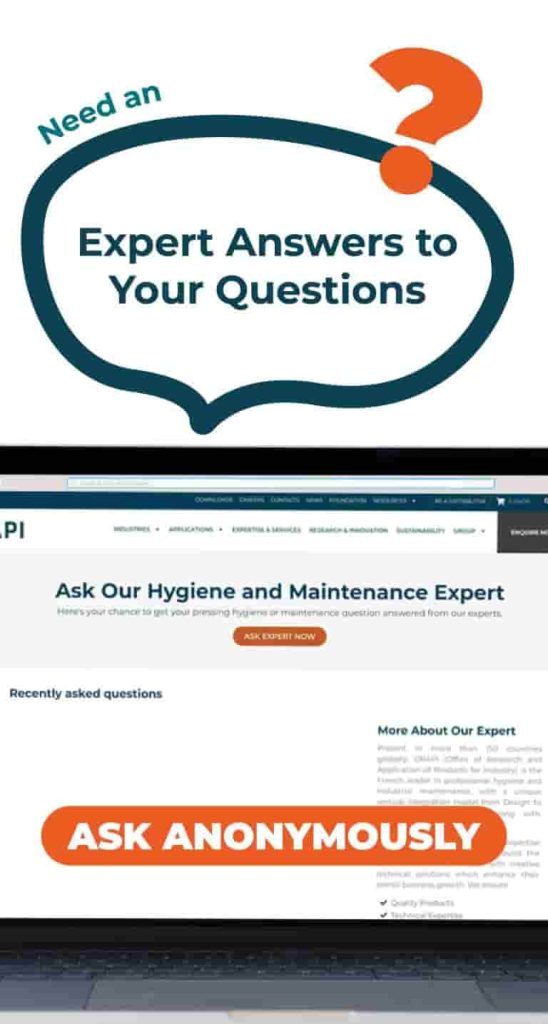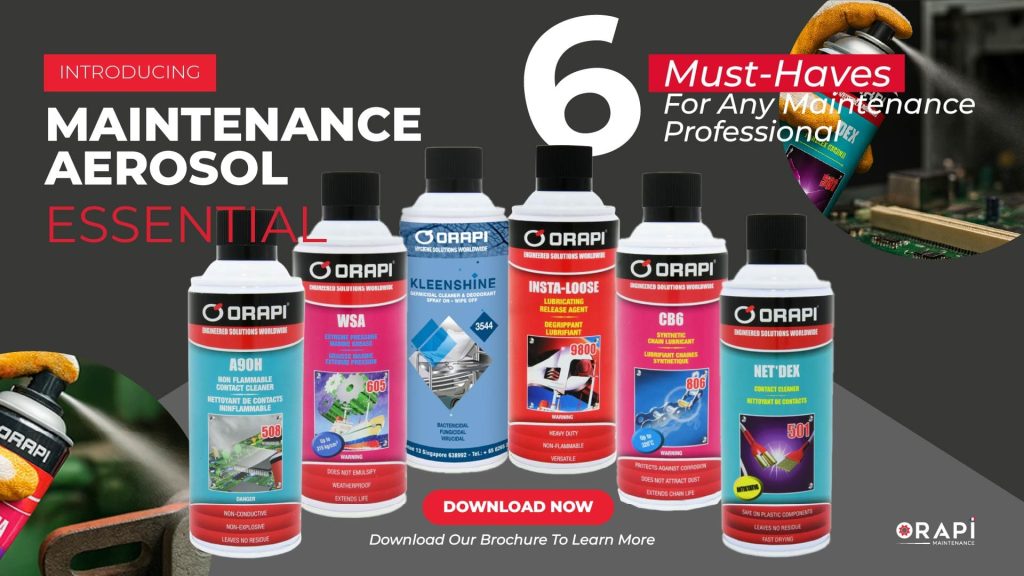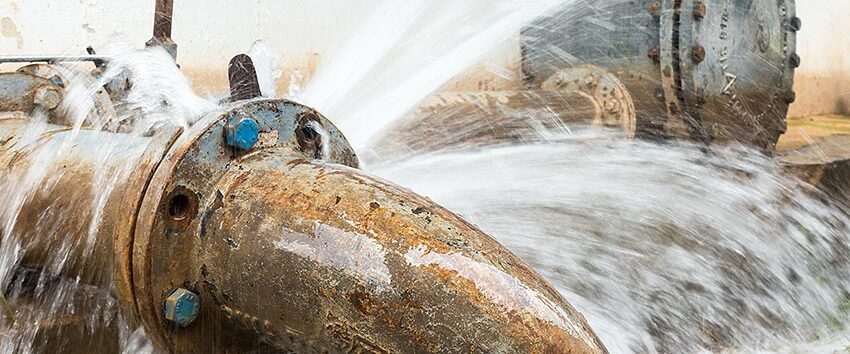
The Consequences of a Commercial Water Leak

A water leak can lead to significant financial problems for your business, such as unexpected water expenses and damage to property and equipment. In this section, we will explore both of these aspects.
Property and Equipment Damage
The risk posed by a water leak may seem harmless, yet even a small leak can cause significant issues if not dealt with promptly. Here are the three most significant potential consequences of an unidentified business water leak:
Structural Damage
Over time, a leak can compromise a building’s structural integrity. Prolonged exposure to moisture can result in wood decay, metal corrosion, and degradation of building materials like drywall and insulation.
Electrical Damage
Water leaks near electrical equipment or wiring create a significant risk of electrical damage and fire hazards. Water can cause short circuits, electrical malfunctions, and corrosion of electrical components.
Damage to Inventory
Water leaks can cause damage to items stored on shelves or in storage areas. For example, leaks from ceilings or plumbing fixtures can directly ruin clothing, electronics, or other goods, making them unsellable.
Increased Commercial Water Bills
In Singapore, the Public Utilities Board (PUB) is implementing the first phase of its Smart Water Meter Programme by installing around 300,000 smart water meters in residential, commercial, and industrial properties. These smart meters function similarly to traditional water meters by measuring the volume of water used as it flows through your property.
If a leak occurs within your property boundary, the water will have already been measured by the smart meter, making you responsible for any water leakage from pipes within your property.
Businesses in Singapore are billed for water through three main components:
- Water Tariff: This covers the costs of water collection, treatment, and distribution.
- Water Conservation Tax (WCT): This tax, calculated as a percentage of the water tariff, is designed to encourage water conservation.
- Waterborne Tax (WBT): This contributes to the costs of treating used water and maintaining the sewer network.
It’s important to note that water meter readings are taken monthly. Therefore, we advise you to monitor for potential leaks regularly rather than waiting until the end of the month.
Identifying Leaks on Your Business Premises
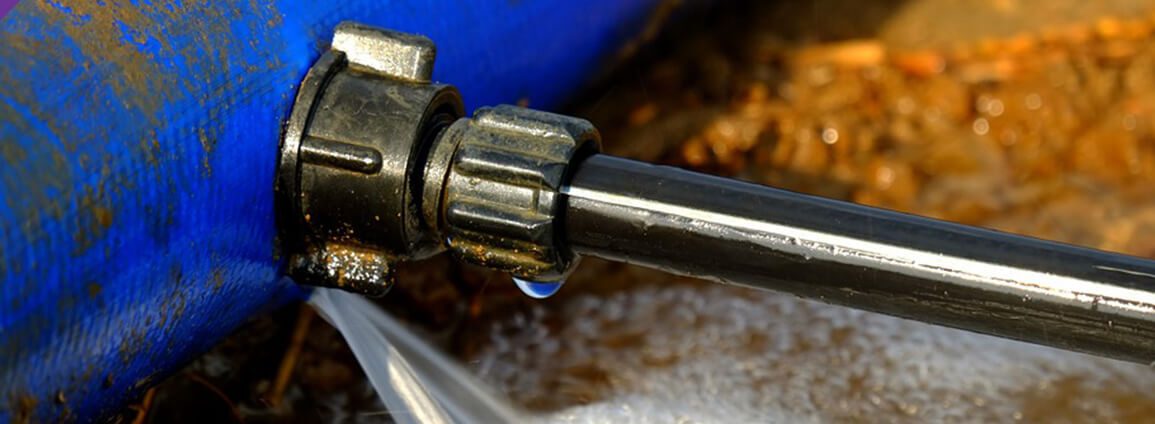
Damp Ground on Your Property
If you notice an area of land that appears unusually saturated with water, it could indicate a significant leak. This kind of leak, typically originating from an underground supply pipe, will impact only a specific area. The rainy Southeast Asian weather can also result in damp ground, making it easiest to spot after good weather.
Subsidence
Mould and mildew
Experiencing a leak could lead to water seeping into the floors, walls, or ceilings of your business property. The affected area may become damp and attract mould, which can produce a musty odour, possibly signalling a broken pipe. Mould growth often suggests a leaking roof or exterior crack, so it’s important to compare the affected area with any utility maps available for your property.
Common Areas to Check for Leaks
The 3-step Leak Check

Step 1
Ask employees to refrain from using water during the test, and ensure that no water is being used in the business (e.g. dishwasher or irrigation).
Step 2
Go to your water meter and record the last two red digits—write them down or take a photo.
Step 3
How to Fix a Leak?
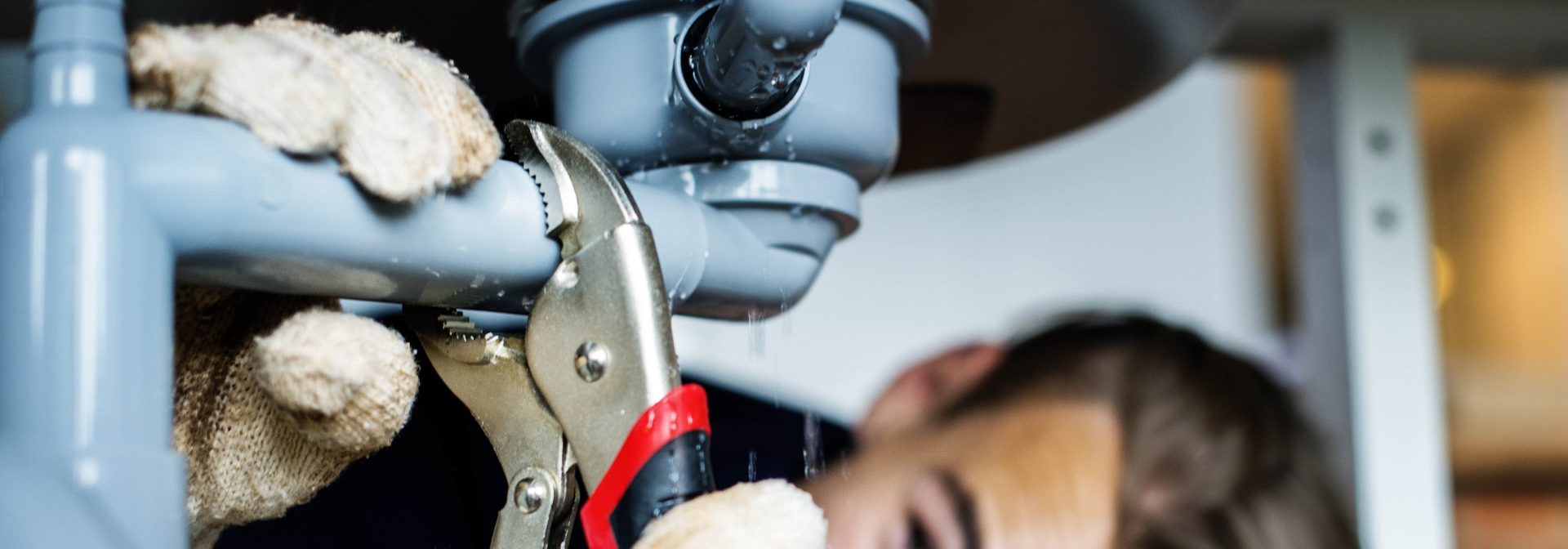
You can fix simple leaks yourself with a bit of know-how. There are plenty of ‘how-to’ videos available online—try doing a quick search on YouTube.
If you prefer professional help, consider these options:
- Get advice from your local hardware store on fixing simple leaks.
- Hire a local handyman for minor repairs.
- For more complex leaks, contact a plumber.
If you are renting, always contact your landlord or property manager and review your rental agreement before attempting any repairs.
How to Fix a Leak?
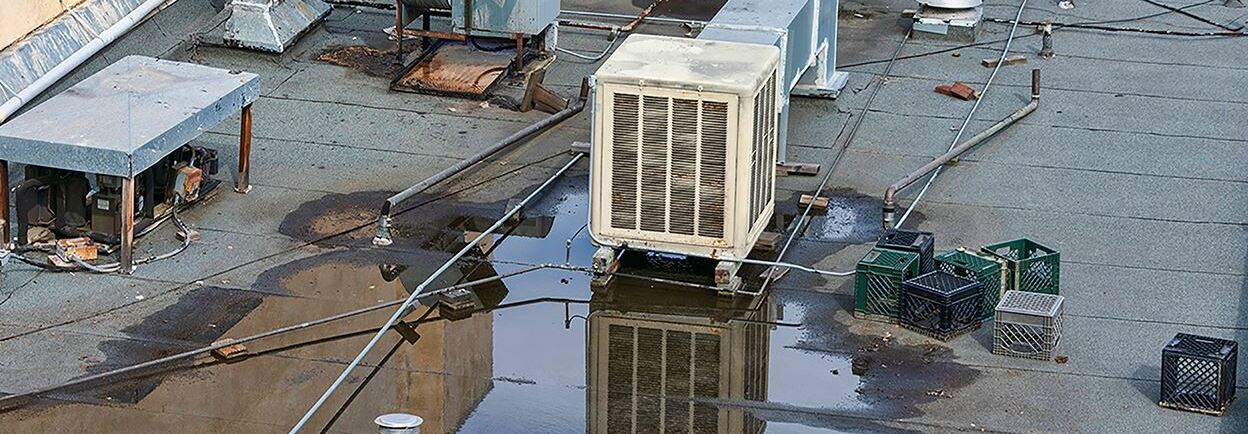
Although the prevention of water leaks varies depending on the specific nature of your commercial property, here are some tips we recommend:
Install a Smart Water Meter
A smart water meter continuously monitors your business’s water consumption and provides simple alerts for any unusual increases that may indicate a water leak.
Regular Inspections
Your maintenance team should regularly inspect plumbing systems, including pipes, faucets, and water-using appliances, for signs of leaks.
Plumbing Maintenance
Schedule regular maintenance for your plumbing systems. This should include checking for corroded pipes, worn-out seals, or loose fittings and repairing or replacing them as necessary.
Building Insurance
We recommend securing a commercial building insurance policy that covers any losses associated with water leaks.
Business water leaks – FAQs
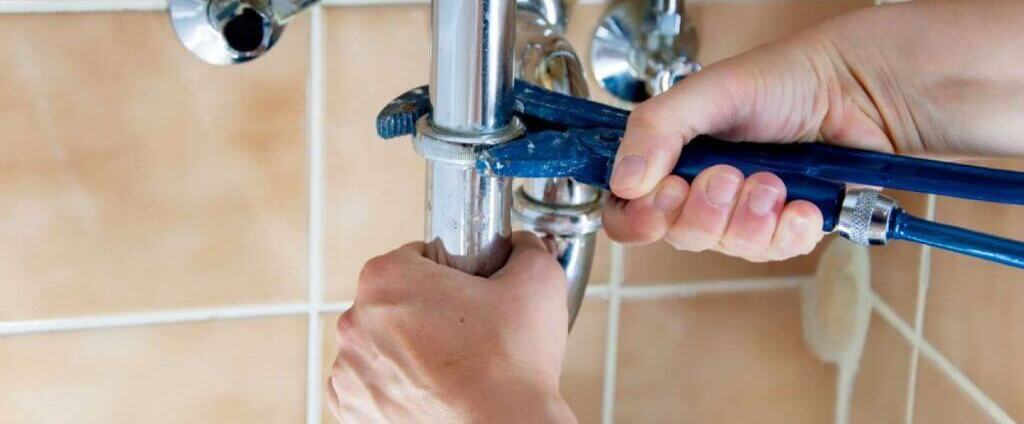
What Should I Do if Your Water Metre is Leaking?
Who Is Responsible for Water Leak on My Business Premises?
The liability for a business water leak depends on the location of the leak.
- Outside of Your Business Property: If the leak is outside the boundaries of your property, it is the responsibility of the local water company.
- Inside of Your Business Property: If the leak is within the boundaries of your property, the property owner or occupier is liable.
Conclusion
It is important for business owners to address commercial water leaks to prevent financial losses and maintain the structural integrity of their property. Regular inspections, the installation of smart water meters, timely maintenance, and having appropriate insurance can significantly reduce the risks associated with water leaks. Being proactive and vigilant can help avoid unexpected high water bills and damage to property and inventory. Stay informed and prepared to ensure your business remains resilient against the challenges posed by water leaks.





